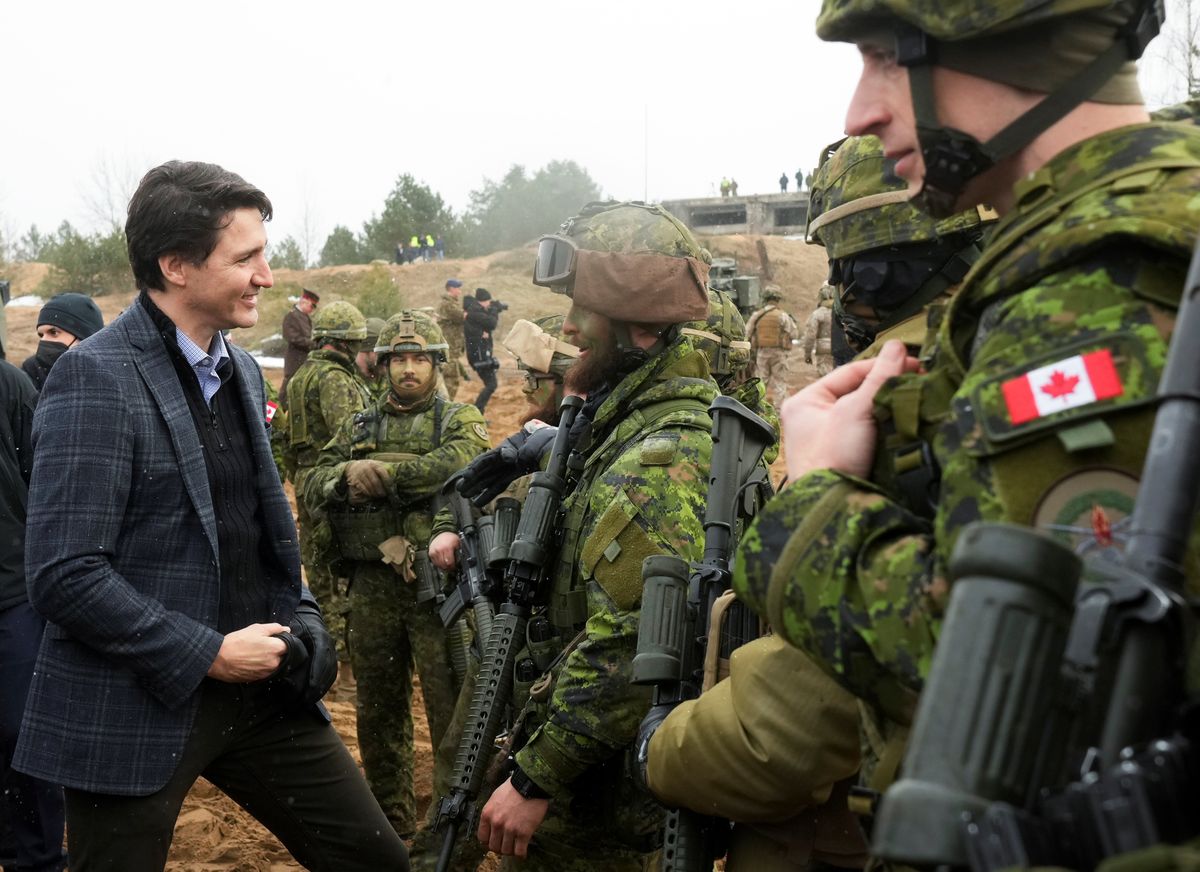Trudeau’s defense spending
Canadian PM Justin Trudeau has privately told NATO officials that Canada will never meet the alliance’s target of 2% of GDP on military spending, the Washington Post reported Wednesday. The revelation is based on a US intelligence document leaked on the Discord gaming app, allegedly by a 21-year-old intelligence staffer.
The document says NATO allies — particularly Germany and Turkey — are irritated by Canada’s reluctance to increase defense spending and its inability to fulfill commitments to the alliance. “Widespread defense shortfalls hinder Canadian capabilities,” the document said, “while straining partner relationships and alliance contributions.”
Earlier this week, dozens of former top Canadian security officials, military commanders, and politicians released an open letter calling on Trudeau’s government to take national security and defense more seriously. Canada’s defense department pushed back, saying that it just agreed to spend $19 billion on 88 F-35 fighter jets and that it’s investing in modernizing NORAD capabilities and increasing its footprint in the Canadian-led NATO battle group in Latvia.
The Liberals argue that they have increased defense spending, and the Parliamentary Budget Watchdog, an independent office, confirms that nominal Canadian defense spending grew by 67% between 2014 and 2021, and Canadian outlays as a share of GDP rose by roughly 40% – from 1.0% of GDP in 2014 to 1.4% of GDP in 2021.
That’s still well shy of the 2% goal, but even annoyed allies are behind. While Germany promises to reach the 2% goal, they too are currently at about 1.4% of GDP, and the war is on their doorstep. The US, for its part, leads NATO’s defense spending at 3.47% of GDP. With war raging in Ukraine and tensions rising with China, NATO chief Jens Stoltenberg has said the 2% target should be the floor, not the ceiling.
But domestic politics always drives the appetite for doing more. Increasing Canada’s defense spending has never been a political winner or a political necessity for any party, right or left, as the unstated assumption has always been that “the US will carry the weight.” Fighting wars may be part of the future, but fighting against inflation and for health care dollars are also security issues for politicians — job security that is.
CBC, NPR & PBS fly the coop
Elon Musk ruffled some feathers with new Twitter labels for public broadcasters on both sides of the border this month – and there are implications for the future of his platform and the media outlets.
It started when Musk decided that NPR’s Twitter account should be labeled “State-affiliated media,” as if it was an official mouthpiece for the U.S. government, like China’s Xinhua News Agency. Musk relented and changed NPR’s label to “Government-funded media,” but NPR stopped tweeting in protest. PBS followed NPR’s lead.
Meanwhile, in Canada, Conservative Leader Pierre Poilievre, who wants to end Ottawa’s massive subsidy to the Canadian Broadcasting Corporation, asked Musk to slap a new label on CBC’s Twitter account and celebrated when he did. CBC, like NPR and PBS, has hit the pause button on its Twitter account. Musk responded by changing the label to “69% Government-funded media,” a juvenile joke.
The Twitter chief seems happy to drive content producers away from his platform, so expect more of the same. Even Swedish public radio has taken its leave – not because of a label, but because its audience left Twitter first.
Friendshoring or friend-ignoring
Canadian Finance Minister Chrystia Freeland delivered a speech in Washington last week calling for “friendshoring,” or trade policy that centers on economic cooperation between like-minded countries, particularly Canada and the US.
In her budget this month, meanwhile, Freeland unveiled targeted stimulus programs that aim to keep Canadian clean tech firms from heading south to take advantage of the massive tax credits available in Joe Biden’s Inflation Reduction Act. Nobody knows yet if the Canadian budgetary measures will do what is necessary to stop capital flight, and Canadians are nervous.
Freeland gave her speech as the World Bank and IMF held their spring meetings, but an important part of her message seemed to be targeted at U.S. leaders: “No single country – not even the United States – can invent all of the new technologies, or possess all of the natural resources, that the net-zero global economy requires,” she said.
US Treasury Secretary Janet Yellen spoke last year about friendshoring and the need for “trusted trade partners” to work together to bolster supply chains. But Washington’s industrial policies and subsidies make it hard to know whether Yellen or Freeland’s message will convince American decision-makers to include Canada in its plans for a clean tech future.
“How this plays out,” writes The Globe’s David Parkinson, “will say a lot about whether friendshoring is a realistic path for global trade. Or, alternatively, expose it as a well-meaning step on a slippery slope to a more protectionist future.”


















